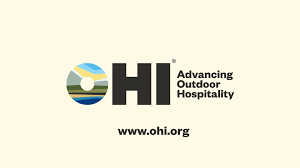Recently, Wisconsin state legislators enacted a significant change in the law regarding “personal property exemption,” which in theory exempts personal property from taxation to provide relief for individuals and businesses.
However, after becoming effective Jan. 1, some municipalities concerned about potential revenue losses shifted the assessment burden onto landowners and, in turn, recreational campground owners. The shift held campground owners liable for collecting and paying the personal property tax on decks, sheds, patios and seasonal camper’s personal property taxes. This resulted in incredibly and unusually high financial burdens for campground owners.
After a significant increase in his property assessment as a direct result of this law, Jim Button, owner of Evergreen Campsites and Resort and vice chair on the OHI (Outdoor Hospitality Industry) board of directors, took action. During the town of Springwater’s board review on Monday, June 3, Button and his team successfully challenged the new interpretation of the law to shift the personal property assessments to campground owners who do not own the property being assessed to them. Button’s team argued that any prior personal property assessments (before their repeal starting in 2024) should not have been shifted to the owners of recreational campgrounds.
Everyone wins with the resolution under Act 12, which allows municipalities to receive reimbursement from the State of Wisconsin for tax revenues lost due to the new personal property exemption, relieving the burden from small campground owners.
“It’s a small-town win here in Springwater but it can mushroom into a big win for the state of Wisconsin,” Button said. “And it’s a difference of $2.7 million in assessed tax value for me, and close to $62,000 in savings for our seasonal campers alone. Maybe in turn, they’ll take some of that and spend it in the local community. In the end, it’s a win for the camper, it’s a win for the small business campground owner and it’s a win for the town overall.”
Button remains committed to resolving this issue, not just for himself but especially for other small and medium-sized recreational campgrounds across Wisconsin.
In Springwater alone, there are six rural recreational parks facing similar challenges totaling to $161,000 for the year of 2023.
“Recreational parks should not be responsible for billing and collecting taxes that are not ours. Plain and simple,” Button said. He argues that placing the burden on park owners is an overreach, fundamentally unfair and likely unlawful.
With the support of his dedicated council team, lobbyist Bob Welch, and OHI (formerly National ARVC), Button is determined to correct this oversight going forward.
“This is a small win today that can and will be rectified,” he said.
Button believes in the professionalism and capability of his team to achieve this goal, ensuring fair treatment and financial relief for all the small businesses that operate recreational parks in rural settings across the state of Wisconsin.
To stay up to date on Outdoor Hospitality Industry advocacy in your state and across the country, visit OHI.org/Advocacy or the OHI Action Center.
